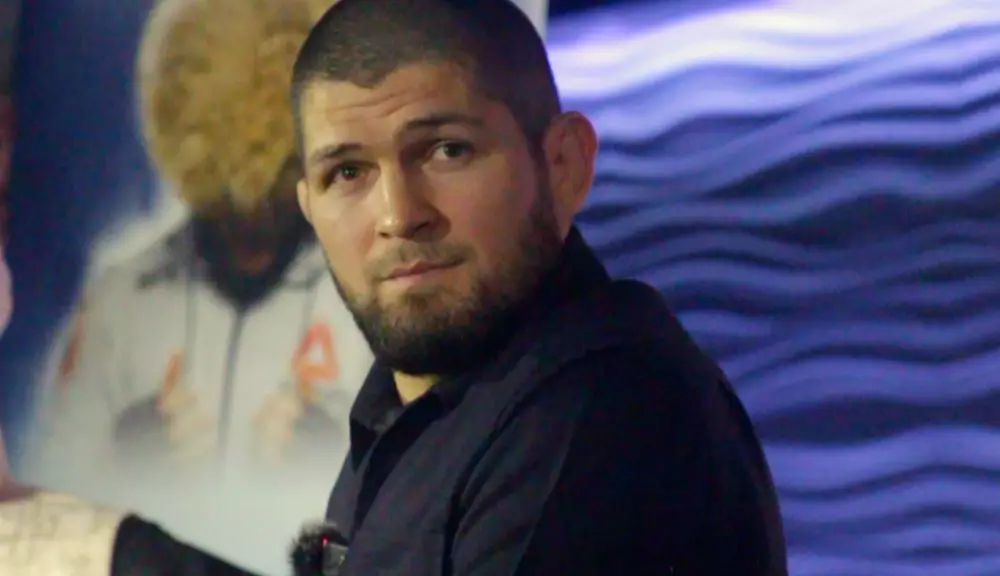In a brief but widely publicized event, UFC Hall of Famer Khabib Nurmagomedov was removed from a Frontier Airlines flight, sparking a flurry of social media commentary and speculation. Video footage of the incident quickly went viral, igniting debates over customer treatment, airline policies, and even undertones of racial bias. Nurmagomedov’s own statement suggests a much more personal experience, where he hints at the possibility of being treated unfairly due to his ethnicity, adding a social dimension to what might have been a straightforward compliance issue.
The incident occurred while Nurmagomedov was preparing to fly from Las Vegas to San Francisco. Notably, it became apparent that the core issue revolved around compliance with the Federal Aviation Administration (FAA) guidelines regarding passengers in exit rows. As someone who holds a prominent position within the sports community, any conflict involving Nurmagomedov not only draws attention but also raises questions concerning the policies in place for airline travel.
FAA regulations dictate that passengers seated in exit rows must demonstrate the ability to assist in the event of an emergency. This requirement is vital for ensuring passenger safety and maintaining proper evacuation procedures. In this particular case, the staff at Frontier Airlines claimed that Nurmagomedov did not adequately respond to requests for confirmation of his ability to assist during emergencies. Despite his claim to be proficient in English and capable of comprehending the situation, the flight attendant’s assertion painted a different picture: that he remained unresponsive to repeated inquiries.
A closer examination of the airline’s response reveals an attempted clarification of their adherence to safety protocols. Following their statement, it seems evident that Frontier aimed to depict their actions as grounded in policy rather than personal prejudices or ulterior motives. Nevertheless, situations like these often lead to more questions than answers, especially when high-profile individuals are involved.
It’s impossible to overlook the racial implications that incidents such as this one can evoke. Nurmagomedov’s comments about the flight attendant’s demeanor being “rude,” combined with his speculations about the motivations behind her insistence to remove him, introduce a layer of complexity. Was it simply a misunderstanding of FAA regulations, or could it indeed have been colored by racial bias? In a multi-cultural society, these interactions often become flashpoints for discussions on discrimination, highlighting how race can frame experiences even in professional environments such as air travel.
In response to the backlash, Frontier Airlines firmly asserted that the incident had no connections to Nurmagomedov’s ethnicity. They emphasized that the grounding of their decision stemmed purely from their commitment to enforcing FAA regulations, attempting to prevent any negative stereotypes from taking root in public perception. Yet this mingling of protocol and personal interpretation leaves much for people to discuss.
This incident not only impacts those directly involved but also carries implications for passengers and the airline industry as a whole. It brings to light essential questions regarding how flight attendants and airline staff are trained to handle sensitive situations, particularly relating to cultural competency and effective communication strategies. How do airlines protect against misunderstandings and ensure staff are well-equipped to navigate diverse passenger backgrounds?
Moreover, social media platforms have become a double-edged sword in incidents like these—on one hand, they empower individuals by providing a space to share their stories. On the other, they can quickly distort narratives and fuel unfounded assumptions, leading to potential reputational harm for the individuals or organizations involved. The questions raised are both immediate and far-reaching, influencing public opinion and regulatory scrutiny.
The incident involving Khabib Nurmagomedov and Frontier Airlines serves as a case study, shedding light on the intricate layers that can complicate what may initially appear to be straightforward situations. As the series of events unfold, it is crucial for passengers and airline staff alike to recognize the importance of clear communication and understanding, alongside adherence to safety regulations.
Ultimately, dialogues spurred by this event should aim for meaningful changes in how both airlines and passengers interact—encouraging policies that foster a sense of inclusivity while ensuring the utmost compliance with safety guidelines. In navigating cultural nuances, comprehensive dialogue could be the crucial step toward greater harmony and understanding in travel experiences going forward.

